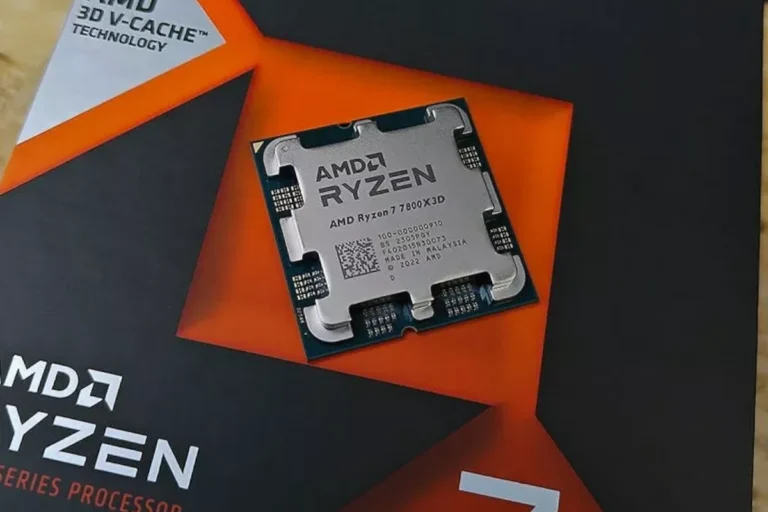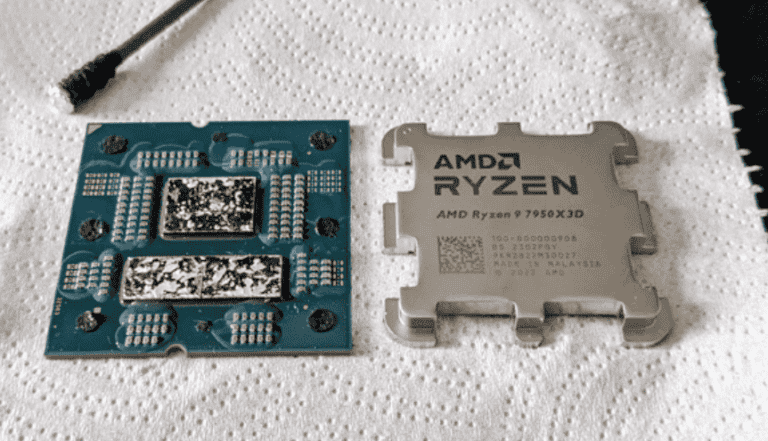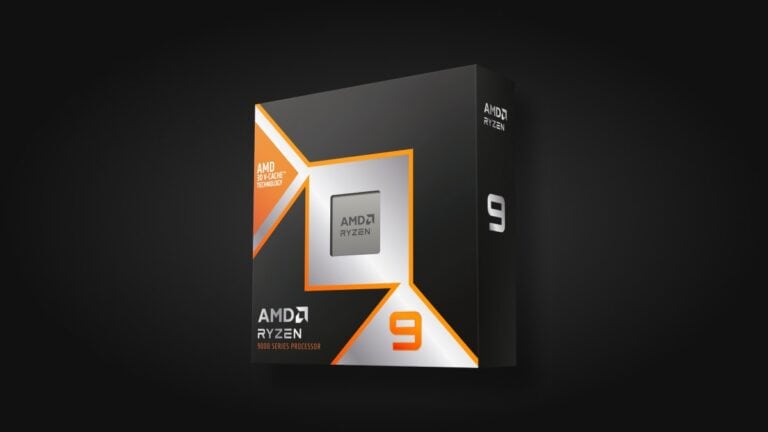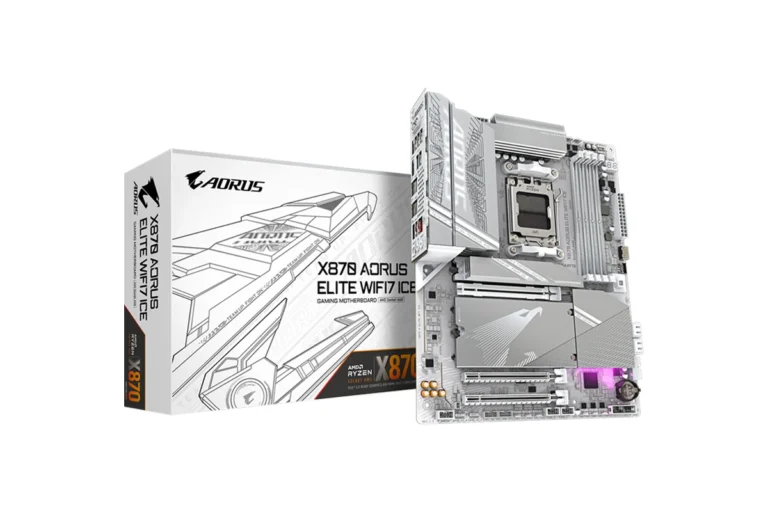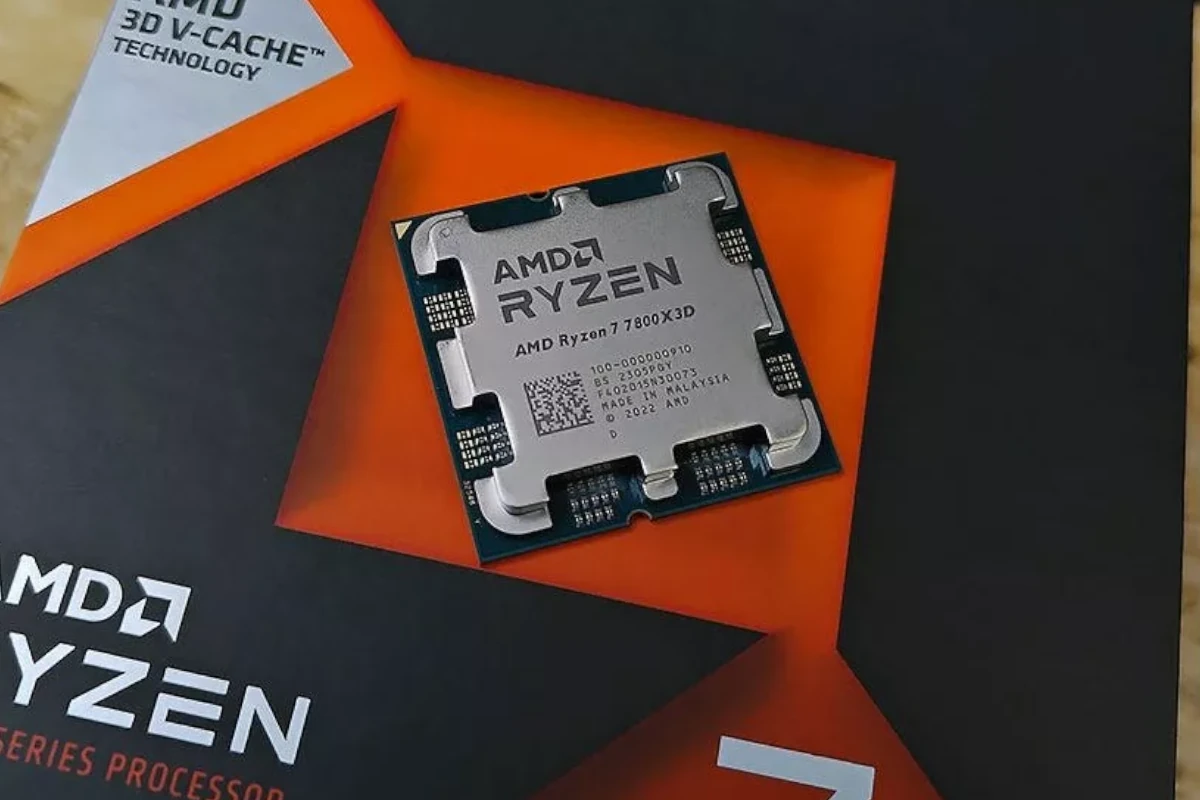
When it comes to computer processors, AMD and Intel are the top names. Both create chips for gaming, but which one is better for high-end gaming? The battle for the best high-end gaming processor is between AMD and Intel. Both companies have great processor options with the latest technologies. But which one is truly better for gamers looking for top performance?
AMD’s newest Ryzen processors tend to offer better gaming performance than Intel’s chips, especially at the high end. AMD’s 3D V-Cache tech gives their top CPUs an edge in many games. The Ryzen 9 7950X3D is very fast for both gaming and other tasks.

Intel isn’t far behind though. Their Core i9-14900K is a strong gaming chip too. It has lots of cores and very high clock speeds. This helps it keep up with AMD in many games. Intel chips can also be a good choice if you want to do other things besides gaming on your PC.
In this article, we explore the key factors to consider when choosing between AMD Ryzen 7000 and Intel 14th Gen Core processors. We compare their performance, value, gaming technologies, and more. We also include a detailed comparison table to help you make an informed decision. Let’s take a closer look at this intense rivalry and find the best processor for your high-end gaming setup.
AMD vs. Intel: The Ultimate Gaming Processor Showdown
The AMD vs. Intel rivalry heats up when it comes to high-end gaming. Both companies offer powerful processors, each with unique strengths. Let’s break down the key factors to consider:
Raw Performance
Intel traditionally held the crown for single-core performance, crucial for games that don’t fully utilize multiple cores. However, AMD’s Zen 4 architecture has narrowed the gap significantly. High-end Ryzen 7000 series processors, like the Ryzen 9 7950X3D, go head-to-head with Intel’s Core i9 counterparts in gaming benchmarks. In fact, the Ryzen 9 7950X3D is currently the fastest gaming CPU on the market due to the extra L3 Cache, but suffers a bit in productivity tasks.
Value for Money
AMD often wins in this category, offering comparable performance to Intel at lower price points. This is especially true in the mid-range and budget segments. However, the price difference narrows for the most high-end models. In this generation, the Ryzen 9 7950X3D and the Core i9-14900K are both priced at $699.
Gaming Technologies
Both AMD and Intel invest in gaming-specific technologies. AMD’s Precision Boost Overdrive and StoreMI aim to optimize performance, while Intel’s Turbo Boost Max Technology 3.0 focuses on single-core speed.
Overclocking Potential
Enthusiasts often lean towards Intel for overclocking due to their unlocked “K” series processors. However, AMD’s Ryzen processors also offer decent overclocking headroom.
Platform and Ecosystem
Intel’s platform has been more mature, offering a wider selection of motherboards and features. However, AMD’s AM5 platform is catching up, especially with the introduction of DDR5 support.
Table: Head-to-Head Comparison
| Feature | AMD Ryzen 7000 Series | Intel 14th Gen Core |
|---|---|---|
| Architecture | Zen 4 | Raptor Lake Refresh |
| Socket | AM5 | LGA1700 |
| Memory Support | DDR5 | DDR4/DDR5 |
| PCIe Support | PCIe 5.0 | PCIe 5.0 |
| Top-End CPU | Ryzen 9 7950X3D | Core i9-14900K |
So, Which is Better?
Both AMD and Intel offer powerful processors for high-end gaming, but AMD emerges as the clear winner. The reason is simple: AMD’s Ryzen 7000X3D series CPUs, especially the 7800X3D, deliver unparalleled gaming performance. This is largely thanks to AMD’s innovative 3D V-Cache technology, which provides a massive increase in L3 cache. This extra cache dramatically improves gaming performance by allowing the CPU to access game data much faster. As many users have pointed out, even older high-end CPUs rarely bottleneck a GPU in most games. However, the 7800X3D pushes the boundaries, offering a noticeable performance uplift in many titles. It’s the current champion for gamers who demand the absolute best.
Key Takeaways
- AMD’s newest chips often beat Intel for high-end gaming performance
- Intel processors are still very good and can handle gaming plus other tasks well
- Both brands offer strong options, so look at specific models and prices when choosing
Comparing Processor Performance
AMD and Intel both offer powerful processors for high-end gaming. Their CPUs differ in key areas like architecture, core counts, and power efficiency. These factors affect gaming performance and value.
Architecture and Technology
AMD uses Zen architecture in its Ryzen CPUs. The latest Zen 4 chips bring big speed boosts. Intel’s Core processors use different designs like Alder Lake and Raptor Lake. Both brands keep improving their tech.
AMD’s 3D V-Cache adds extra memory to some chips. This helps gaming a lot. Intel focuses on high clock speeds to boost performance.
Ryzen 7000 and 13th Gen Core CPUs support PCIe 5.0 and DDR5 RAM. This gives faster data speeds for top-end systems.
Core Performance and Count
High-end gaming CPUs from both brands have many cores. AMD’s Ryzen 9 7950X has 16 cores and 32 threads. Intel’s Core i9-13900K matches this with 24 cores (8 performance, 16 efficiency) and 32 threads.
More cores help with tasks besides gaming. This includes streaming and video editing. Single-core speed matters most for many games. Both AMD and Intel chips do well here.
Intel’s latest chips can reach higher clock speeds. The i9-13900K boosts up to 5.8 GHz. AMD focuses on overall efficiency.
Thermal Design Power (TDP) and Energy Efficiency
TDP shows how much heat a CPU makes at full load. Lower TDP means less power use and easier cooling. AMD Ryzen chips often have lower TDP than similar Intel models.
The Ryzen 9 7950X has a 170W TDP. Intel’s i9-13900K starts at 125W but can use up to 253W for top speed. This means Intel chips might need better cooling systems.
AMD generally wins in power efficiency. Their chips often use less power for similar performance. This can mean lower electric bills and less heat.
Platform and Future Proofing
Both brands use different sockets for their CPUs. AMD’s AM5 platform is newer and supports only DDR5 RAM. Intel’s LGA 1700 works with both DDR4 and DDR5.
AMD tends to support sockets longer. This can make upgrades easier. Intel changes sockets more often but offers a wider range of CPUs.
Both platforms now have PCIe 5.0 support. This helps future-proof systems for new graphics cards and storage. AMD and Intel also offer overclocking on their high-end chips for extra performance.
Gaming-Specific Processor Analysis
AMD and Intel both make powerful CPUs for gaming. Their top chips offer fast speeds and smooth gameplay. Let’s look at how they compare in key areas.
Graphics and Visual Performance
AMD’s Ryzen 9 7950X3D shines in graphics-heavy games. Its 3D V-Cache boosts frame rates at 1080p and 1440p. The chip works well with high-end graphics cards.
Intel’s Core i9-13900K is also strong. It has high clock speeds that help in games that rely on single-core performance. This CPU pairs nicely with top GPUs for 4K gaming.
Both brands support PCIe 5.0. This allows for faster data transfer with new graphics cards. The choice often comes down to which games you play most.
High-Fidelity Gaming Benchmarks
In tests, the Ryzen 9 7950X3D often leads at 1080p. It shows big gains in games that use lots of cache. The Core i9-13900K catches up at 4K, where the GPU matters more.
The Ryzen 7 7800X3D is a cost-effective option. It matches or beats pricier chips in many games. Intel’s Core i7 models offer good mid-range performance too.
For budget gamers, the Ryzen 5 5600 and Core i5 chips provide solid value. They can handle most games well at 1080p with the right graphics card.
Price to Performance Ratio for Gamers
AMD’s Ryzen 7 5800X3D offers great value for gaming. It works with older motherboards, cutting upgrade costs. The newer Ryzen 5 7600X is also a good buy for its price.
Intel’s Core i5-13600K is a top pick for mid-range builds. It balances cost and speed well. The Core i7-13700K is worth looking at for a step up in performance.
High-end chips like the 7950X3D and 13900K are pricey. They’re best for gamers who want the absolute best. For most people, mid-range options give better value.
Frequently Asked Questions
Gamers often wonder about the differences between AMD and Intel processors for high-end gaming. These questions cover performance, comparisons, and factors to consider when choosing a CPU.
Which CPU brand offers superior performance in high-end gaming?
Both AMD and Intel make great gaming CPUs. The best choice changes as new models come out. Right now, Intel’s Core i9-13900K is very fast for gaming. AMD’s Ryzen 7000 series also performs well in games.
How do AMD and Intel processors compare in terms of gaming capabilities?
AMD and Intel CPUs are close in gaming performance. Intel tends to have a slight edge in some games. AMD often offers more cores at similar price points. This can help with tasks like streaming while gaming.
What are the pros and cons of AMD versus Intel CPUs for gaming?
AMD CPUs often cost less for similar performance. They also use less power. Intel CPUs sometimes have higher clock speeds. This can give them an edge in games that don’t use many cores.
For gaming purposes, is the Ryzen 7 superior to the Intel i7?
The Ryzen 7 and Intel i7 are both good for gaming. Their performance is similar in most games. The latest models from both brands can handle any current game well.
What should I consider when choosing a gaming processor between AMD and Intel?
Think about your budget and what games you play. Look at benchmarks for those specific games. Consider if you’ll do other tasks like video editing. Check what motherboards work with each CPU.
Which processor is recommended for the best gaming experience?
For top gaming performance, consider high-end options like the Intel Core i9-13900K or AMD Ryzen 9 7950X. These CPUs offer great speed for gaming. They also work well for other demanding tasks.

